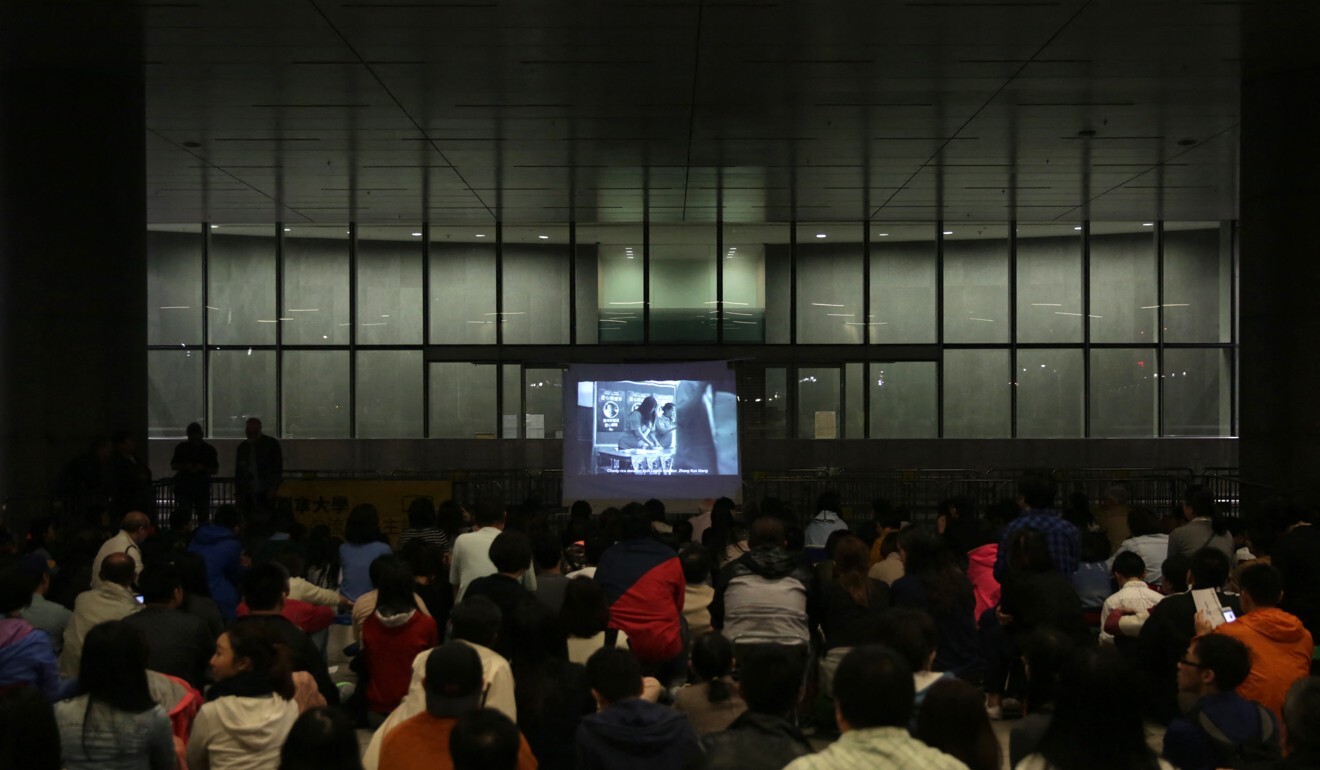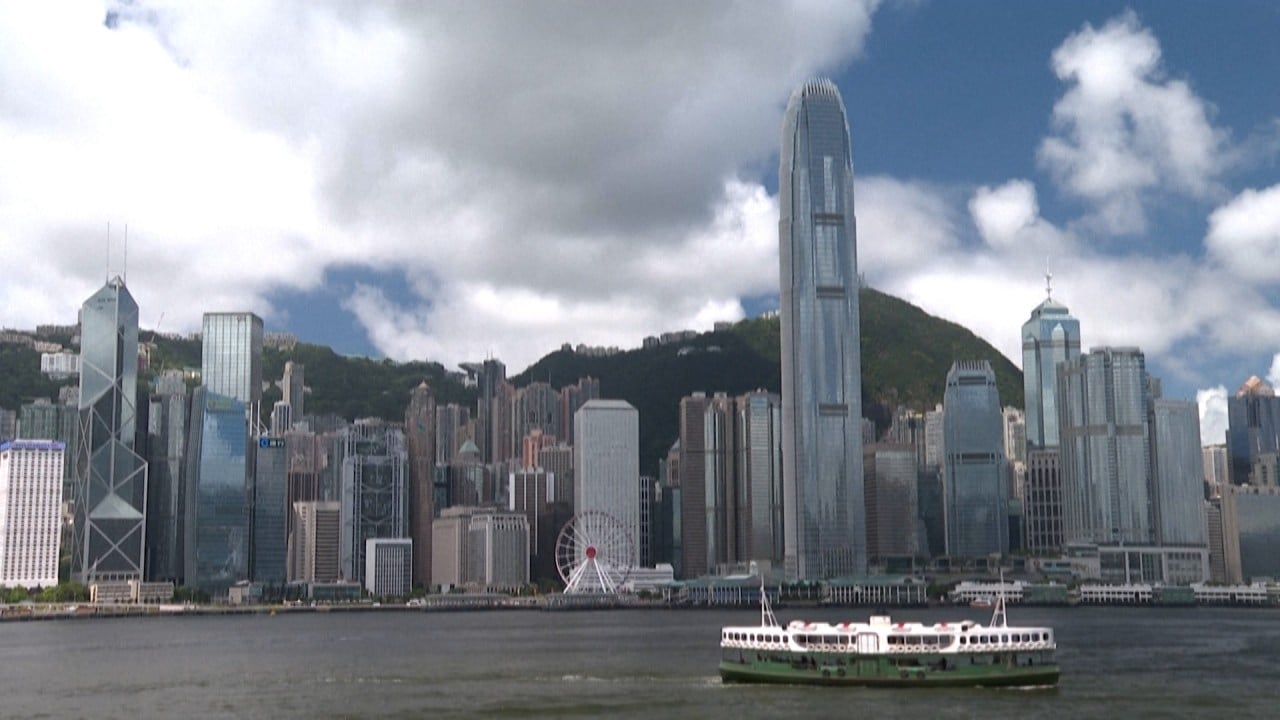
Hong Kong passes bill to ban films deemed threats to national security, increase penalty for unauthorised screenings
- Lawmakers pass Film Censorship (Amendment) Bill 2021, which empowers chief secretary to ban previously approved productions considered a risk to national security
- Penalty for unauthorised screenings increased to three years in prison and HK$1 million fine
Legislators have passed a bill to toughen Hong Kong’s film censorship law, authorising the city’s No 2 official to ban productions that undermine national security and increasing the maximum jail term for anyone who screens movies already classified as a threat.
The minister responsible told a Legislative Council meeting on Wednesday the new rules would not undermine the film industry, once known as the “Hollywood of the Far East”.
But some professionals and commentators raised fears that creativity and freedom of expression would suffer.
By a show of hands, lawmakers approved the Film Censorship (Amendment) Bill 2021, which also requires censors to assess the impact of a production on national security during the approval process.
The changes allow the government to extend the vetting period from the usual two weeks to as long as 28 days so censors can seek legal advice before deciding.
Unauthorised screenings can result in a maximum jail sentence of three years, up from two, and a HK$1 million (US$128,570) fine under the changes to the Film Censorship Ordinance, which also enable the chief secretary to ban the showing of previously approved productions on national security grounds.

Pro-establishment lawmaker Priscilla Leung Mei-fun said films such as Ten Years, which depicts a bleak future for Hong Kong under Beijing’s control, worried her.
“I watched the film in a cinema in 2016, and there was a public screening in Mei Foo where hundreds, including children, watched it together,” she said. “No society in the world welcome forces that encourage young people to break the law, harbour hatred against their own countries and embrace terrorism … Hong Kong must stop these as well.”
Lawmaker Ma Fung-kwok, representing the sports, performing arts, culture and publication sector, said the government had largely addressed filmmakers’ concerns but must remain in contact with the industry to ensure the new rules were properly enforced.
“Before Hong Kong was returned to Chinese rule, political censorship was very strict. But the city’s film industry still managed to thrive,” he said. “The industry is absolutely capable of producing works about different themes without crossing the red line of national security.”
The British colonial government, before giving the city back to Beijing in 1997, did ban films that glorified socialism and once refused to allow a movie about an American workers’ strike to be screened.
Secretary for Commerce and Economic Development Edward Yau Tang-wah said most movies would not be affected and the new rules would not undermine the industry.
“Our objective is simple and direct – it is to improve our film censorship system and effectively prevent and suppress any act that would endanger national security,” he said during the Legco meeting.
“I believe that most films would not have any national security consideration … This bill would provide clear rules for the industry to follow, so that they would not cross the red lines accidentally.”

01:11
Hong Kong passes bill to ban films deemed threat to national security
Kenny Ng Kwok-kwan, an associate professor at Baptist University’s Academy of Film, said the industry had accepted that authorities were tightening their grip over the creative arts.
“The industry was expecting that the changes would be passed so filmmakers were already anticipating how to operate under the new environment,” he said.
Ng predicted that films about politically sensitive matters or critiques of society would end up adapting rather than risking testing the official limits.
He also expected movies that could be judged as sensitive would avoid screening in Hong Kong or even edit out scenes and dialogues to fit the new censorship rubric.
Independent theatres would also probably think twice before screening documentaries, especially those touching on social disobedience or the police, he said.
Tenky Tin Kai-man, spokesman for the Federation of Hong Kong Filmmakers, said the impact of the new rules remained to be seen.
“It’s still hard to determine how strict authorities would apply the legislation in the film community,” Tin said. “We would hope it’s not a sweeping hit, but it depends on how far authorities would go.”
Hong Kong showbiz gripped by looming retroactive ban on films
Pro-Beijing politicians and media have targeted the city’s cultural and creative sectors as part of a campaign against those regarded as supporting the anti-government protests of 2019.
In July, the Arts Development Council confirmed that it had pulled a grant of more than HK$700,000 to Ying E Chi, a non-profit organisation founded by a group of independent filmmakers and the organiser of the Hong Kong Independent Film Festival.
The council pointed to “the negative effects” of films the group released, in particular the documentary Inside the Red Brick Wall, which chronicles the 13-day stand-off between police and protesters at Polytechnic University in 2019.
Meanwhile, lawmakers passed a farewell Valedictory Motion tabled by House Committee chairwoman Starry Lee Wai-king. Speaking at the start of the debate, Chief Secretary John Lee Ka-chiu said it was the first time since 2008 that Legco could move this motion after similar ones were blocked by the opposition camp’s filibustering in 2012 and 2016.
Lee said opposition lawmakers had blocked various proceedings in the past, but following their resignation year ago legislators had managed to accomplish a significant amount of work.
A record 46 government bills were approved, more than double the annual average between 2016 and 2020, he added.

